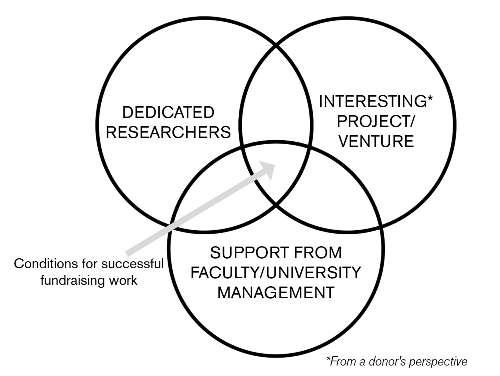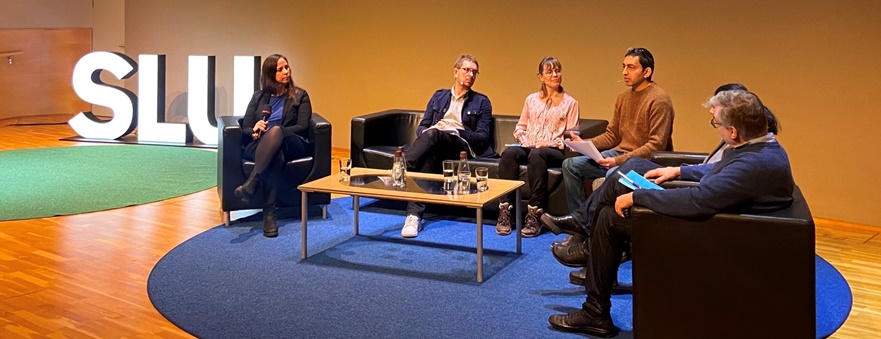The possibility of obtaining funding from established research funding bodies varies across SLU. Fundraising can collect external financial support in the form of donations for research domains or projects that may otherwise be difficult to finance through direct government and external funding. It can also supplement these contributions. Nevertheless, fundraising is not just about money. Other positive effects of successful fundraising include strengthened relationships with society as a whole and raising the university’s profile in prioritised areas.
There are two main approaches to fundraising: proactively attracting investment to be able to conduct important projects that regular research funding cannot finance; and taking care of donations and donors so they are happy to continue supporting SLU.
Where does the funding come from?
The support can be philanthropic (for example from individuals and family foundations), or from companies and foundations that do not issue calls (current calls are listed here). It could involve securing special support from a private or public research funding body that has not advertised, or collaborating with a public organisation such as a municipality or public authority. Many ventures involve several actors coming together to provide funding. Support can be financial, but it can also include people volunteering their services or other resources.
What can be financed through donations and collaborations?
Generally, fundraising at the university is a way to obtain financial support for research (not contract research), however it may also be a way to support infrastructure or courses and programmes. It is easier to raise funds for certain projects or ventures than others – much depends on the donor’s area of interest.
In fundraising, we often talk about the “case for support” – or in simpler terms – the main reasons why the donor or other party should give their support; what their money will be used for; the positive effects; and why SLU is best equipped to conduct this work. Donors are often interested in projects or ventures that benefit society directly, or in subjects that are close to their heart. SLU fundraisers can help researchers and project leaders to pinpoint and describe ideas in a way that appeals to potential donors.
For a bid to be successful, not only is an interesting project necessary but also active participation from researchers and faculty and/or university management.

Does SLU accept donations from anyone?
SLU’s objectives always form the basis for determining if a donation can be accepted. Donations or partnerships must be in line with these objectives and contribute to their attainment. Therefore, donations must not come from donors or be for purposes that go against SLU’s objectives. SLU’s academic autonomy is just as important as fundraising; a donation must not come with conditions that can affect SLU’s academic freedom or integrity, or create a dependency meaning that the university’s work cannot be conducted correctly and impartially.
Donors have the option to receive publicity for their donation through a press release or other form of external communication. However, SLU cannot accept anonymous donations.
Contact us
If you have an idea about an interesting project or other venture for fundraising, complete this form. You can also contact the person in charge of fundraising at your faculty or SLU’s central fundraisers. The same applies if you are in direct or indirect contact with a potential donor or partner. It is important to determine whether any similar initiatives are ongoing before making further contact with the potential benefactor. Please do not hesitate to contact us if you have any questions.

Watch the recording from the Annual funding day 2022 on SLU Play! Among other things, the day gave an insight into the support SLU researchers can receive from the Grants Office, Fundraising and SLU Holding, and seen in the picture; panel discussion between Erika Godoy (The Swedish Research Council), Alexandre Dubois (Formas), Camilla Sjörs (Vinnova), Ninad Bondre (SLU), Gergana Hamberg (The Swedish Foundation for Strategic Research), and Johan Beck-Friis (Marie-Claire Cronstedt's Foundation). Photo: Åsa Formo

